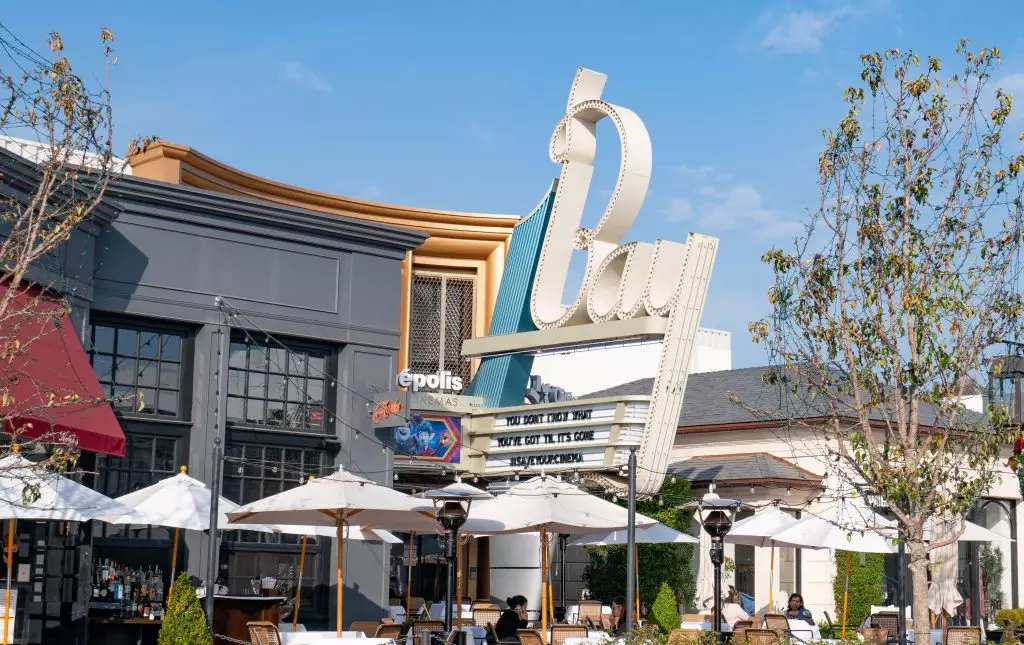The recent Pacific Palisades wildfire in Los Angeles has disrupted not just the local environment but also the vibrant cinema culture that thrives in the city. As the epicenter of the American film industry, Los Angeles is responsible for a significant portion of the nation’s box office revenue. Wildfires, such as the one currently devastating parts of California, pose an immediate threat to public safety and have wide-reaching consequences for local businesses, especially cinemas. This article explores the implications of the wildfire on the movie theater landscape in Los Angeles, alongside an analysis of its impact on upcoming film releases.
As the wildfire raged on, approximately ten cinemas in the Los Angeles area shut their doors to ensure the safety of patrons and staff. Prominent movie theaters that have closed include well-known venues such as AMC Americana in Glendale and Regal Sherman Oaks. The closure of these cinemas not only removes access to blockbuster films but also stands as a stark reminder of the chaos that natural disasters can inflict on everyday life. The AMC Universal City Walk, despite being located within a major attraction, has also closed its doors, reflecting the broader impact the fire has on entertainment as a whole.
While some theaters temporarily closed, others like the bustling AMC Burbank remained operational. Burbank is a high-traffic location that consistently ranks among the top grossers in the nation, showcasing the unpredictable nature of audience behavior in times of crisis. The difference in operational status among theaters underscores how geographic proximity to peril can influence a cinema’s ability to remain open.
The historic Bay Theater, a landmark cinema owned by local real estate mogul and political contender Rick Caruso, found itself at the heart of the wildfire’s destruction. Occupied and booked by Netflix, the Bay Theater has been a staple for many local film enthusiasts. With the ongoing fire threatening the entire shopping complex surrounding it, the theater’s closure is a poignant mark of the disaster’s reach. In contrast, distribution sources indicate that the theater itself may have been spared from direct fire damage, allowing for the hope of a quick revival once conditions permit.
Despite some theaters closing, others in safer zones continue to operate, but the overall film-going sentiment in Los Angeles is fragile. As evacuation orders are enforced and people are advised to stay off the roads, the appeal of going out to watch movies significantly declines.
The Broader Implications for Movie Releases
The wildfire’s strain on the film industry extends beyond theater closures to the repercussions on film promotions and releases. Major premieres have been canceled, including anticipated debuts for films like Universal’s Wolf Man and Amazon MGM’s Unstoppable. These cancellations illustrate the disruptive ripple effect caused by natural disasters on established entertainment calendars. For an industry that thrives on the excitement of reviews, premieres, and audience engagement, these events are crucial in generating buzz and ticket sales.
Upcoming films such as Lionsgate’s Gerard Butler-led production, Den of Thieves 2: Pantera, face an uncertain future as the typical weekend box office expectations fluctuate due to external crises. Early estimates project that this film, among others, may struggle to capture substantial audience attention during this tumultuous time.
The Pacific Palisades fire has acted as a detrimental force to the thriving film community of Los Angeles, directly affecting theaters and scheduling for important movie releases. With natural disasters becoming increasingly commonplace, the film industry must adjust, embrace resilience, and find innovative ways to engage audiences even in the face of adversity. The emotional pull of cinema must never be underestimated, and as Los Angeles and its people rebuild, the collective spirit of film will undoubtedly play a vital role in the healing process. We all must stand by those impacted and look forward to the revival of the silver screen experience that has, for so long, defined the cultural fabric of this city.

